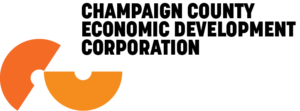News Room
Drug company honors Carle doctor
Thu, 12/01/2011 – 8:00am | Debra Pressey, staff writer, The News Gazette
URBANA — In the early years when HIV/AIDS was quietly mushrooming into a worldwide epidemic, Dr. Philip Johnson decided to learn as much as he could about the virus and disease.
An adult medicine doctor at Carle, Johnson diagnosed his first AIDS patient in 1985 — the same year the first test for HIV was licensed — and soon had about a dozen HIV-infected patients in his practice, he recalls.
“I decided about that time, I knew as little or much as anyone else around here, and I educated myself and dealt with my patients,” he recalls.
Johnson was one of 15 finalists in a national Bristol-Myers Squibb contest to name five heroes in the war on human immunodeficiency virus and AIDS, the deadly disease it can cause.
The contest was held to celebrate the five-year anniversary of the HIV treatment drug Atripla, and there were nearly 400 applicants, according to the drug company’s associate director of public affairs Cristi Barnett.
Johnson, nominated by the HIV staff at Carle Foundation Hospital, has specialized in the treatment of HIV/AIDS patients for nearly three decades.
Carle officials said Johnson’s work with HIV/AIDS in the local community has extended far beyond treating his patients. It’s included the launching of an HIV/AIDS support group at Carle and a new fund for HIV education and charity, and working closely with the Champaign-Urbana Public Health District.
Julie Pryde, administrator of the public health district, said she’s worked with Johnson on HIV/AIDS prevention and care in the community since 1988.
Champaign-Urbana is as far ahead in HIV/AIDS screening, education and treatment as it is, largely because Johnson had the courage to take this on early, and continue to make this a focus, she said.
Johnson also set the bar high for how AIDS patients should be treated, with dignity and respect, “and that has been very good for client care in our area,” Pryde said.
For World AIDS Day today, the Carle facility at 1818 E. Windsor Road, U, where Johnson sees patients, will be handing out educational materials about HIV/AIDS.
Johnson says care and treatment has advanced considerably since the early years when HIV/AIDS was first becoming known. Since 1995, effective medications have helped infected people live longer, he says.
“Ever since, there’s been a remarkable improvement with what we can do for patients,” he adds.
These days, infected patients can live near-normal life expectancies, Johnson says. But there’s still one major problem, he adds: People are still becoming infected.
In the U.S. alone, there are 50,000 new infections a year, Johnson says.
“That’s really kind of crazy,” he adds.
According to a Centers for Disease Control and Prevention report this past August, the number of new HIV infections in the U.S. was holding steady at 50,000 a year between 2006 and 2009, but infections have increased among young men having sex with men during those years, especially among young black men, the only population group to experience a sustained increase for those three years.
“Nobody should catch HIV,” Johnson says.
There is still some ignorance about safe sex, Johnson says. He also says there’s a fear factor for some women, who can’t force their husbands or partners to wear condoms.
For some people, protection may not be available, and for others, they just don’t think it can happen to them, Johnson says.
“There are few people who have had just one sex partner in their whole life, and even one partner, if it’s the wrong partner, is a risk,” he says.
Johnson says he agrees with the CDC’s recommendation that HIV screening be part of routine clinical care in all health care settings, and he’d also like to see all pregnant women tested.
For those who engage in risky behavior or have multiple partners, more than one screening may be necessary, he said.
“Know about your partners and use condoms until you’re ready to bet your life, literally,” he advises.
